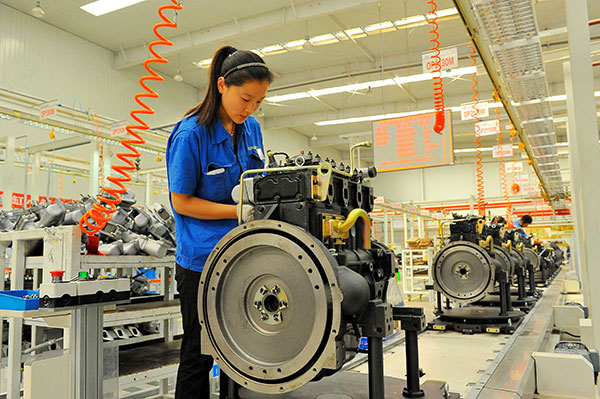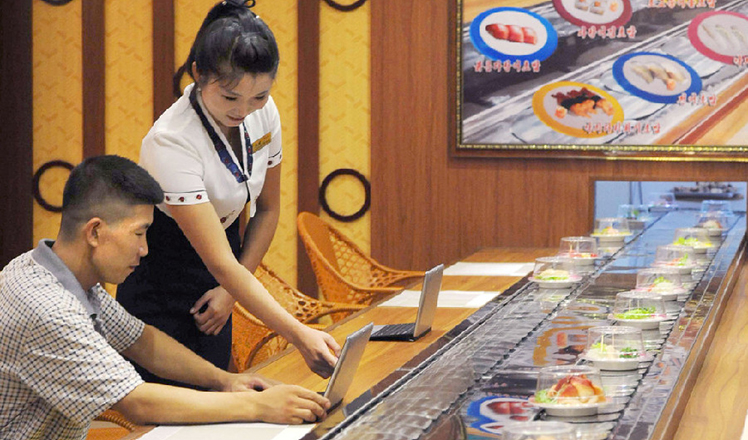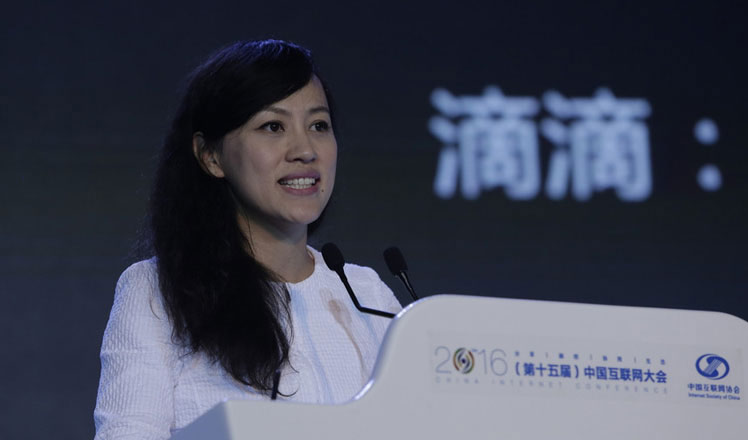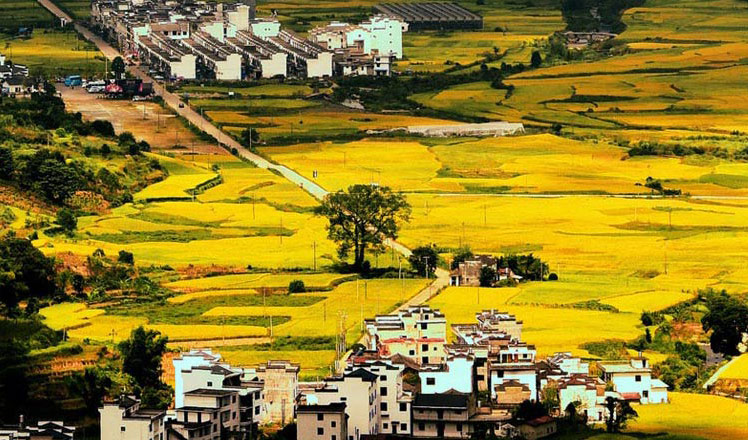The five major development concepts
Updated: 2016-09-23 08:49
By ROBERT LAWRENCE KUHN(China Daily)
|
||||||||
 |
|
Workers assemble engines at a factory in Weifang, Shandong province. [Photo/China Daily] |
China's economy is in historic transition. Opportunities and challenges abound. China's problems are daunting: slower growth, social imbalances, industrial overcapacity, excessive debt, massive pollution-the list goes on. How to address such diverse, complex issues? China has an overarching, guiding strategy. According to President Xi Jinping, China's development model, going forward, will be driven by "innovation, coordination, green, openness and sharing". It's called the "Five Major Development Concepts".
Why these five concepts? How does each work? Why are they amalgamated? Why this order? Moreover, since each of the five concepts is already well known and commonly prescribed, why now this guiding, integrated strategy?
I address these questions in a series of six essays-this overview, and one on each of the five concepts. They are based on six episodes of my TV show, Closer to China with R.L.Kuhn, on CCTV News, which tells the true story of China via China's thought leaders. ⅔(Watch "The Five Major Development Concepts" on "Closer To China with R.L.Kuhn"-CCTV News, Sundays 9:30 am and 9:30 pm China time, beginning September 25.) These episodes are in turn based on a new book, Piloting China. In the book, the Five Major Development Concepts are explained in theory and illustrated in practice through real-world case studies.
Guided by the book, I traveled across China with our CCTV crew to see how these five concepts are being implemented. It was an adventure.
I was pleased to find "Innovative Development" in the top spot, the first of the five development concepts. It signals that China's leaders appreciate the primary role of reform in the country's economic and social transformation. Reform requires change, change requires doing things differently, and doing things differently requires innovation. I looked for two kinds of innovation: obviously in science and technology, but also in management and processes.
In order to optimize economic development, the efficient allocation of resources is essential. That's why "Coordinated Development" is the second development concept. While China now recognizes that the market must play a "decisive" role, still there are issues, such as when provinces and cities compete with each other by developing similar industries. Other issues requiring coordination include how to integrate diverse regions and rebalance urban and rural areas.
Pollution has become a scourge in China, the debilitating consequences of rapid industrial development. Chinese people are exceedingly displeased to see their air, water and soil so polluted, and the government has responded by elevating "Green Development", the third development concept, to highest national importance. One of the pioneers has been East China's Zhejiang province, where in 2005 Xi Jinping, then Zhejiang Party secretary, famously said: "Clear waters and green mountains are mountains of gold and silver." Putting the theory into practice, Zhejiang has pioneered an "eco-compensation" system, which enables regions to both preserve the environment and develop eco-friendly industries.
I've been visiting China since the late 1980s and I bear witness to China's historic development. "Open Development", the fourth development concept, is exemplified by China's free trade zones, the Belt and Road Initiative, and Chinese companies going abroad (building infrastructure, selling high-speed rail, even buying foreign companies).
China cannot become a "moderately prosperous society" until its economic and social imbalances-particularly between rural and urban areas-are reduced and poverty is eliminated. That's why "Shared Development", the fifth development concept, is vital. Shared development comes last, not because it is least important, but because it requires the success of the first four development concepts.
As China's economy settles into its "new normal", with slower growth and multiple challenges, Xi calls for market and government, working together, to optimize and balance efficiency and fairness. The government, in Xi's philosophy, is "smart", while the market is "decisive". That's why his Five Major Development Concepts now inform the thinking and guide the behavior of officials at all levels of government.
For China to fulfill its first comprehensive goal of becoming a "moderately prosperous society" by 2020, its economy must transition and its society must rebalance-and to bring about such major transformations, the Five Major Development Concepts are crucial.
The author is a public intellectual, political/economics commentator, and international corporate strategist.
- US fighter jet crashes off coast of Okinawa, Japan: DM
- State of emergency declared in US city Charlotte amid violent protests
- Clinton to highlight foreign policy experience to woo voters
- UN chief calls for support for political solution to Syrian conflict
- Brazil to begin Zika vaccine trials in humans
- Greek govt vows to improve refugee situation on island after fire

 8 things you may not know about Autumn Equinox
8 things you may not know about Autumn Equinox
 Italian sets new record with Ferrari on 'miracle road'
Italian sets new record with Ferrari on 'miracle road'
 Students compete for flight attendant jobs in Sichuan
Students compete for flight attendant jobs in Sichuan
 1st Sushi restaurant opens in DPRK
1st Sushi restaurant opens in DPRK
 Top 14 Chinese women in Fortune's ranking
Top 14 Chinese women in Fortune's ranking
 Hangzhou airport offers beds to tired travelers
Hangzhou airport offers beds to tired travelers
 Protesters march against EU trade deals with US
Protesters march against EU trade deals with US
 In photos: Chinese harvest in full swing
In photos: Chinese harvest in full swing
Most Viewed
Editor's Picks

|

|

|

|

|

|
Today's Top News
Trump outlines anti-terror plan, proposing extreme vetting for immigrants
Phelps puts spotlight on cupping
US launches airstrikes against IS targets in Libya's Sirte
Ministry slams US-Korean THAAD deployment
Two police officers shot at protest in Dallas
Abe's blame game reveals his policies failing to get results
Ending wildlife trafficking must be policy priority in Asia
Effects of supply-side reform take time to be seen
US Weekly

|

|









